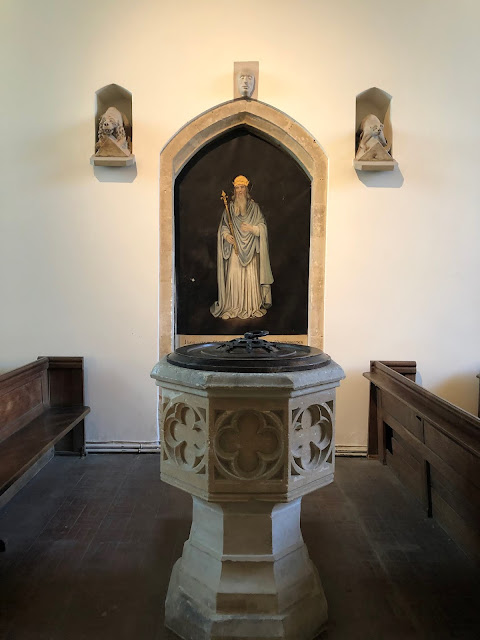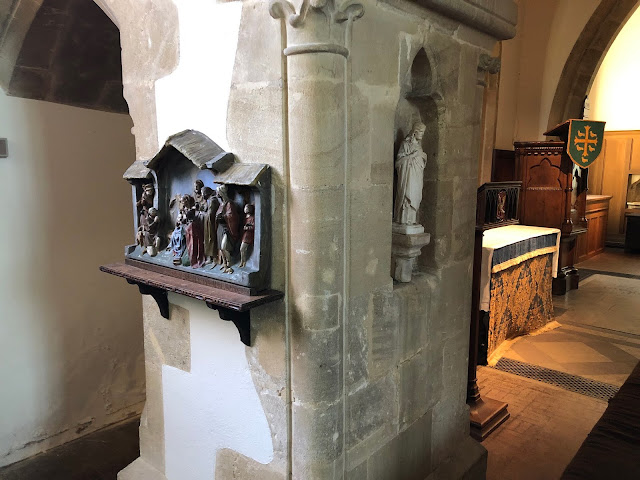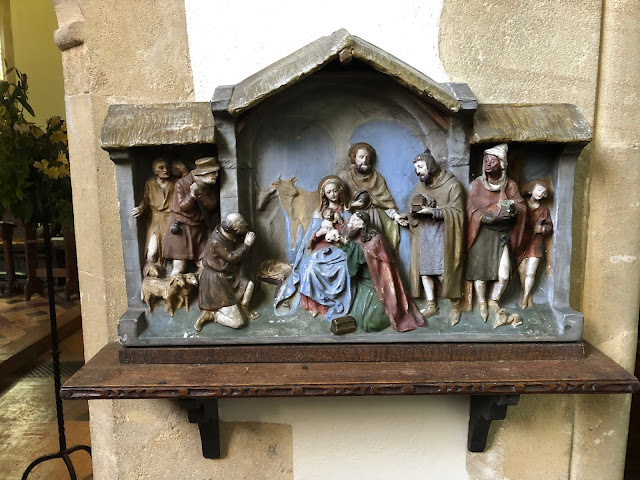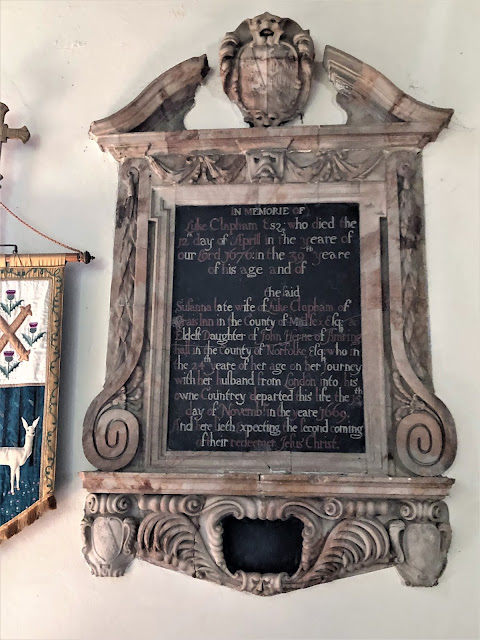This week I'm jumping a week with my post and hoping I will get to visit the church I was to feature this week. After visiting the church in my blog last week the Church Warden told me St Nicholas Islip was open so after visiting the next church I went back to Islip and indeed found the church open for Prayer. More history found on their website
" Situated at a crossing-point of the River Ray, Islip was a royal manor where Saxon kings stayed while hunting in neighbouring forests. King Edward the Confessor was born here about 1004, and when he founded Westminster Abbey he included his birthplace among the endowments of the new abbey. Hence the long connection between Islip and Westminster Abbey, which still retains the right to nominate rectors of Islip. John Islip, Abbot of Westminster 1500-32 and responsible for a major enlargement of the abbey church, probably came from Islip. Dr Robert South, Prebendary of Westminster, endowed the local school in 1710, besides rebuilding the chancel of the church and building a new rectory on a grand scale. Three deans of Westminster were also rectors of Islip, William Vincent 1802-15, John Ireland 1816-36, and William Buckland 1845-56, the last a distinguished pioneer of the science of geology and first professor of the subject at the University of Oxford.
The oldest part of the present church of St Nicholas dates from about 1200, but a major rebuilding took place in the 14th century and the tower was added in the 15th. Burnt down in the Civil War, the chancel was rebuilt and the interior refurnished by Dr South in 1680. There was a further, rather drastic, restoration in 1861.
In 1987 the five parishes of Islip, Noke, Woodeaton, Charlton-on-Otmoor and Oddington were united into a single benefice. In 2001 this benefice was combined with that of Ambrosden, Merton and Piddington to form the Ray Valley Benefice under a single rector"
I parked nearby at the village hall where there is a children play area, it contains the wooden sculptures of two Saxon Warriors this one is nearer the church in the background
Look right and you see the south aisle
Turn around and you look a this beautiful Frosted Glass screen was made by Nicholas Mynheer
Going back down the nave aisle you come closer to an altar which stands just inside the nave in front of the chancel arch
Beyond you see the chancel with the choir stalls either side and the church organ
Going into the chancel you cannot help notice the beautiful altar and carve panel behind
Above you see the east window
The wooded panel at the end contains the Roll of Honour for Islip
On it is listed a woman Nurse Mary Hombersley
On another panel you find the lost from WWII
On the pillar beside the aisle are a couple of carvings
This one of the nativity I found particularly nice
Apart form a couple like this one which is all stained glass
Saints in the one with St Christopher on the right, the one on the left could be St Nicholas
The church also has some prayer panels
You can also find a bequest belonging to William Augur
Memorial plaques can be seen on the walls
This one to a churchwarden Edward Wilmot Francis Gilman
This memorial I did think at first was quite old but in reading the inscription you find it more modern. The memorial is to the Caffyn family who died
This one dated Luke Clapham is dated 1676
This one to Robertus South dated 1680
This one is faded and quite hard to read from the photo but looks like it is dated 1610, it depicts the squire and husband wife kneeling with their children behind. It looks like 7 boys and 8 girls, not unusual in those days
This one to Edward Duwe looks dated 1606. the problem is with the inscription on all of the old ones is that the red lettering fades making them hard to read
This memorial is to James Harrackes who was a parson and died on 15th Feb 1625
Time to return to the amazing frosted glass partition at the west end
Rather than try and tell you about the detail about the glass work I suggest you visit this blog by Victoria Emily Jones who tells you more
Last look at the church















































0 Yorumlar